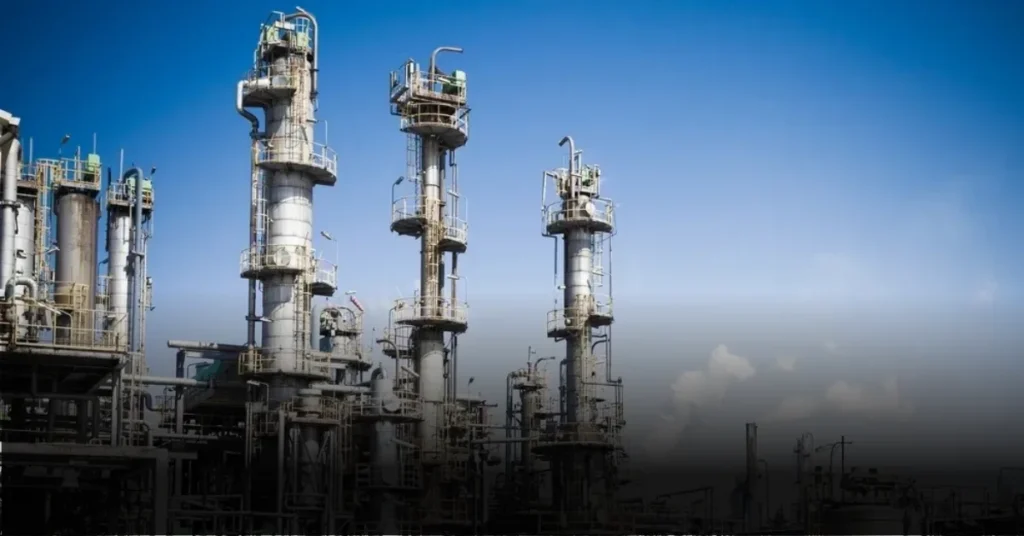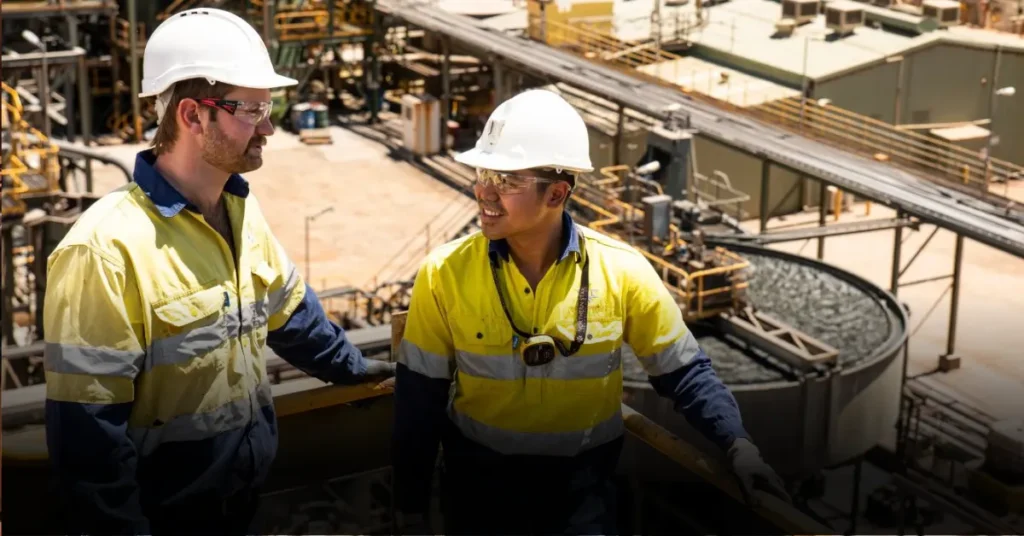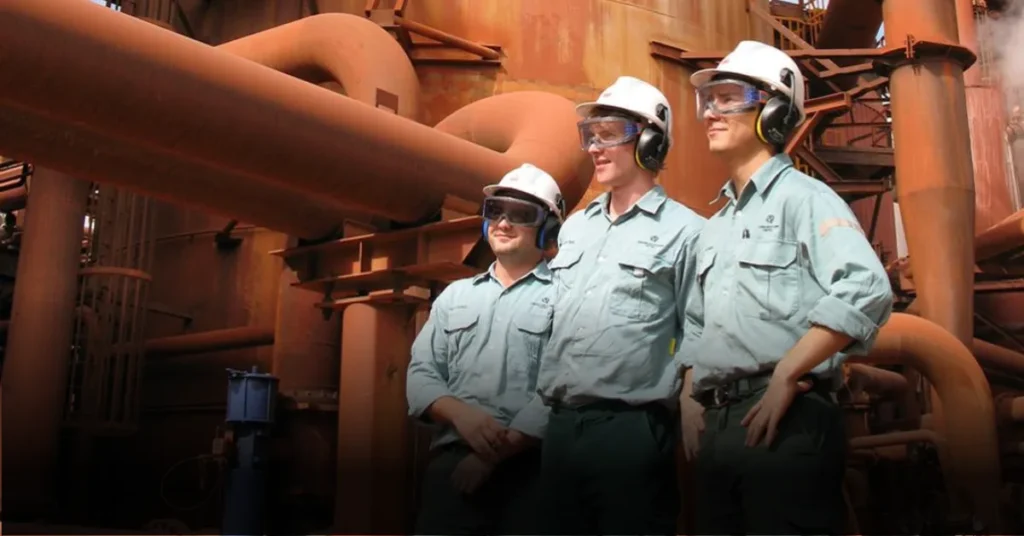150+ Duties of Metallurgical Diploma Holder Jobs 2025 Complete Guide
Are you a metallurgical diploma holder looking for a good and safe job in 2025? Metallurgy is a very important and changing field. Having a diploma can help you get a job that is needed a lot and is practical. This guide will explain many job opportunities, main responsibilities, important skills, and future trends for metallurgical diploma holders. Whether you just finished your studies or want to specialize, this article is here to help you.
The New Horizon: The Evolving Role of the Metallurgical Diploma Holder in 2025
Today, metallurgical technicians do much more than just work in labs. In 2025, they are very important in many industries like airplanes, cars, energy, and machines. They need to know both old traditional methods and new digital tools. The work now includes advanced manufacturing, safe methods for the environment, and using data to make good decisions.
The world wants materials that are stronger, cheaper, and safer. This builds metallurgical diploma holders main. They help industries save money, improve quality, and protect the environment.
Beyond the Foundry: Why the Metallurgical Technician is a Vital Asset
A metallurgical diploma holder is very important for many companies.
- They check the quality of materials to make sure bridges, cars, and rockets are safe.
- They work in foundries to make important parts.
- They study new metals and alloys to make better products.
They are experts in testing materials, finding problems, and improving processes. Their work affects product quality, cost, and safety. Today, they also use automation and real-time data to make production faster and more accurate.
Also Read: 100+ Duties of Customer Premises Associate Jobs 2025 Complete Guide
A Day in the Life: A Glimpse into the Modern Metallurgical Workspace
A metallurgical diploma holder has a busy and varied workday.
- They may start in a foundry, watching molten metal being poured.
- Then, they move to a lab to look at metal under a microscope.
- Later, they prepare a report on tests done without damaging the metal (non-destructive testing).
Their work happens on both the production floor and in a laboratory. They need to do hands-on work and also pay close attention to details. This job is good for people who like doing many different tasks and seeing a project from start to finish.

The Cornerstone: Core Duties in Raw Material Handling and Preparation
Metallurgy starts with raw materials, and workers must check and ready them. This step is very important for success.
From Mine to Mill: Receiving and Inspecting Incoming Materials
Workers check minerals, scrap metals, and mixtures when they come. They do basic basic interviews to build sure materials are right and meet rules. Following rules like ASTM and ISO is very important.
The Crucible: Preparing and Charging Furnaces for Melting
Technicians measure materials carefully before putting them in a furnace. They follow safety rules and make sure the mixture will create the right metal or alloy.
The Alchemist’s Touch: Alloying and Composition Control
After materials are in the furnace, technicians watch the melting process. They take samples and test the chemical composition. They adjust elements in the metal to get the perfect alloy.
The Forge: Production and Processing Operations
This is where raw materials turn into useful products. Diploma holders play a straight role in the best quality of the last product.
The Casting Connoisseur: Supervising and Executing Casting Processes
Technicians watch molten metal being poured into molds. They check temperature, flow, and cooling. They make sure there are no defects like holes or shrinkage in the metal.
The Shaping Scribe: Rolling, Forging, and Extrusion Techniques
Technicians work with hot or cold metal to shape it into sheets, rods, or parts. They check machines and control the process to get the right strength and properties.
The Heat Whisperer: Controlling Heat Treatment Processes for Desired Properties
Heat treatment changes the strength, hardness, and flexibility of metal. Technicians control furnace temperatures and cooling times to get the right properties.
The Surface Surgeon: Applying Surface Finishing and Coating Techniques
The surface of the metal affects how strong and long-lasting it is. Technicians do surface work like coating, plating, and painting to prevent rust and damage.
The Quality Keeper: Ensuring Excellence in Every Phase
Quality is very important in metallurgy. Diploma holders make sure every product meets strict standards.
The Lab Guardian: Performing Chemical and Spectroscopic Analysis
Technicians use lab machines to check the chemical composition of metals. This prevents faulty products and ensures quality.
The Microscopic Eye: Conducting Microstructural and Phase Analysis
Using microscopes, technicians study the metal’s grains and phases. This helps understand the metal’s strength and detect problems early.
The Strength Tester: Mechanical Testing for Tensile and Hardness Properties
Technicians test metals for strength and hardness using special machines. This is important when metals are under pressure or stress.
The Flaw Finder: Non-Destructive Testing (NDT) for Hidden Defects
Non-destructive testing finds hidden cracks or defects without damaging the metal. Techniques include ultrasonic testing, magnetic particle inspection, and X-rays.
Other Important Duties of Metallurgical Diploma Holders
Metallurgical diploma holders do many other tasks in different industries. Some duties include:
- Helping engineers design new alloys.
- Maintaining machines and furnaces.
- Recording production data and creating reports.
- Following safety rules in the workplace.
- Improving production processes to save time and money.
- Teaching new workers about metalworking techniques.
- Working with other departments like quality, production, and research.
- Using computer software to analyze metals and processes.
- Participating in environmental safety programs.
Skills Required for Metallurgical Diploma Holders
To do these jobs well, metallurgical diploma holders need certain skills:
- Knowledge of metals, alloys, and materials.
- Lab skills for testing and analyzing metals.
- Ability to read technical drawings and plans.
- Mechanical skills to work with machines.
- Problem-solving skills for production issues.
- Attention to detail to prevent defects.
- Computer skills for analysis and reports.
- Good communication to work with teams.
- Safety awareness for handling hot metals and chemicals.
Future Trends in Metallurgy for 2025
In 2025, metallurgy will change even more. Diploma holders need to know about:
- Industry 4.0 and smart factories.
- Automation and robots in production.
- Data analysis to predict material performance.
- Environment-friendly methods for less pollution.
- New high-performance materials for cars, airplanes, and electronics.
Learning these new trends will help diploma holders get better jobs and grow in their careers.

The Problem-Solver: Troubleshooting and Process Optimization
In factories, problems happen every day. Metallurgical diploma holders help solve these problems. They think carefully and find solutions. They check what went wrong and try to fix it.
The Process Detective: Identifying and Resolving Production Anomalies
Sometimes, products do not pass quality tests. Then, the technician checks why. They seek at parts, check the data, and communicate to helpers. They seek the important reason for the issue. This supports the factory build the best products.
The Efficiency Engineer: Optimizing Energy Consumption and Material Yield
In 2025, saving energy and materials is very important. Diploma holders duty to use low energy in machines like ovens. They also try to reduce waste. Saving energy and materials is good for the environment. It also saves money for the factory.
The Innovation Catalyst: Participating in Research and Development Projects
Many new diploma holders work in production. But they can also help in research and development. They work with engineers to make new metal mixes. They test new ways to make products. This work is exciting and brings new ideas to the factory.
The Failure Analyst: Investigating Material Failures and Root Causes
When a metal part breaks, a technician studies it. They check the damage part carefully. They seek at tiny structures inside the metal. They write a record related why it damage. This support stop the all issues in the future and grow the quality.
The Digital Edge: Embracing Technology in the Modern Metallurgy Lab
Technology is changing metallurgy. Diploma holders need to use computers and software. They need to understand latest digital tools to do their work well.
The Data Driver: Using Software for Process Simulation and Modeling
Workers use software to plan metal methods. They exam casting, forging, and rolling on computers. This shows how metals will behave before using original machines. It saves time, stops the all mistakes, and builds duty easier.
The Automation Advocate: Operating and Monitoring Automated Equipment
Many industries now have directly machines. Diploma holders workers do not just duty with hands. They monitor, program, and take care of these all machines. This builds work modern and exciting.
The Digital Logbook: Meticulous Data Recording and Reporting
All exams results and methods all information are saved digitally. Diploma holders need to use software for data analysis. They also write complete record. Best records support improve duty and build it simple to check the results.
Metallurgical Diploma Holder Jobs 2025 Complete Guide
| Field | Example |
|---|---|
| Job Type | Full-time |
| Application Date | 15 Sep 2025 |
| Job Location | Karachi |
| Company Name | ABC Metals |
| Official Website | Online Apply Through |
Safety First, Always: Adhering to Health and Environmental Protocols
Safety is important step in metallurgy. Diploma holders workers must keep the work areas save. They also protect the environment.
The Safety Steward: Implementing and Enforcing Workplace Safety Standards
Technicians build sure helpers follow safety rules. They check that helpers dress the correct equipment. They lead save meetings. Safety stops accidents and injuries.
The Environmental Champion: Managing Waste and Reducing Emissions
Factories make waste and smoke. Technicians help manage waste and recycle materials. They check emissions to protect nature. This is part of green metallurgy and sustainability.
The Compliance Captain: Adhering to Regulatory Standards and Audits
Technicians must know safety rules from local and international authorities. They follow rules from organizations like EPA and OSHA. They also help during audits. Audits check if the factory is safe and follows rules.
The Future is Here: Emerging Duties and Specializations
Metallurgy is always changing. New jobs are coming for diploma holders.
The 3D Printing Pioneer: Working with Additive Manufacturing of Metals
Metal 3D printing is growing fast. Diploma holders work with metal powders for printing. They prepare the powders and clean parts after printing. This is a new and special skill that many factories need.

The Recycler: Sourcing and Processing Scrap for Sustainable Production
Recycling is very important today. Technicians sort and process scrap metal. They check it to use again in production. This helps reduce waste and saves money. Recycling is part of green manufacturing.
Also Read: 150+ Duties of Customer Service Executive Jobs 2025 Complete Guide – Urgently Hiring Careers Grow
The Nanomaterial Navigator: Handling and Characterizing Advanced Materials
Some technicians work with very small materials called nanomaterials. These materials must be handled carefully. They also work with composite materials made of two or more metals. This is interesting work for people who like new technology.
Your Career Path and Development
A diploma in metallurgy is a good start. There are many ways to grow and get better jobs.
The Next Step: Career Paths and Advancement Opportunities
After working as a technician, a diploma holder can become a supervisor or team lead. They can also work in quality control. Some companies help diploma holders continue education. They can study for a Bachelor’s or Master’s degree in metallurgy. Higher education can lead to management or research jobs.
Certification Programs
Some certifications make diploma holders more valuable. These include non-destructive testing (NDT) or welding inspection. Certificates are often needed for special jobs.
Author Bio:
This article is written by experts in metallurgy and careers. They have over 20 years of experience. The information comes from job data in Pakistan and around the world. It also uses reports from the U.S. Bureau of Labor Statistics. The goal is to give clear and helpful advice for metallurgical diploma holders.
CTA:
Are you ready to start your metallurgy career? Ask your questions in the comments below. Subscribe to the newsletter for updates on jobs and career tips in 2025.







